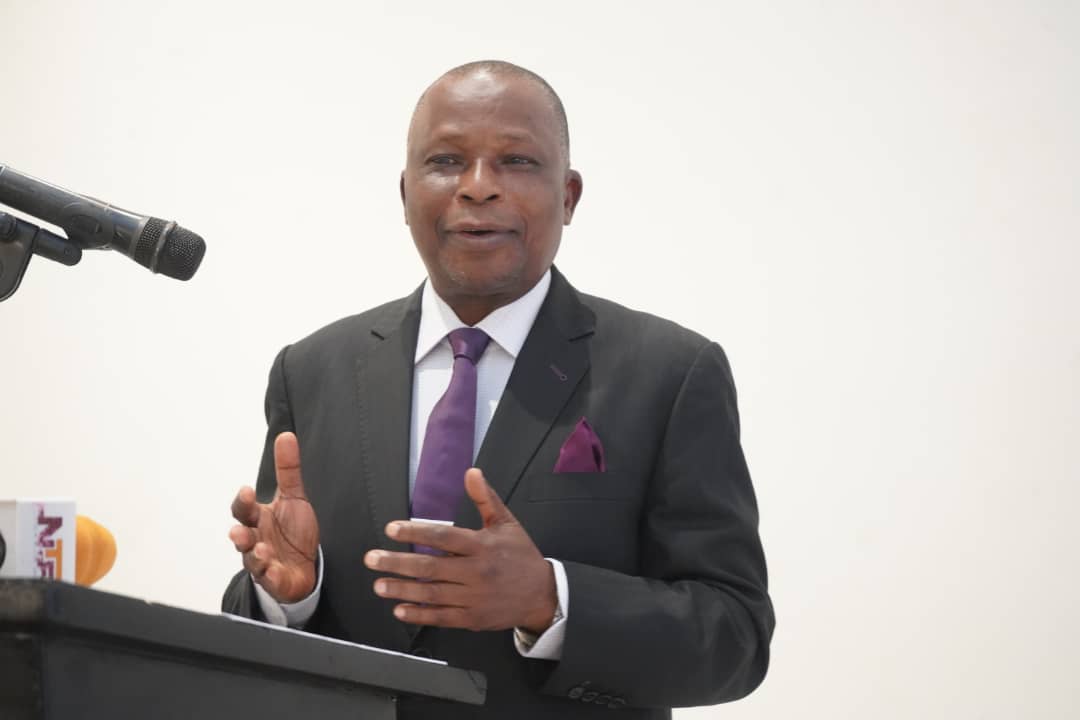Attorney-General of the Federation and Minister of Justice, Prince Lateef Olasunkanmi Fagbemi, SAN, has proposed excluding the prerogative of mercy in corruption cases during the next constitutional amendment.
The prerogative of mercy is a power granted to the President under Section 175 and to Governors under Section 212 of the 1999 Constitution (as amended), allowing them to pardon or commute the sentences of convicted individuals.
Speaking at a one-day conference organized by the Independent Corrupt Practices and Other Related Offences Commission (ICPC) for state Attorneys General in Abuja, Prince Fagbemi emphasized the importance of unity in the fight against corruption.
The Minister of Justice urged all stakeholders to approach corruption impartially, free from religious, cultural, or political biases stressing that, “In the fight against corruption, we must all act as statesmen,”.
According to AGF, “When corruption is involved, the only relevant question should be: what are the facts? There should be no room for biases like ‘Where is he from?’ or ‘What is his religion?’. I suggest that in our next constitutional amendment, corruption cases should be excluded from the prerogative of mercy.”
The keynote speaker, former Attorney-General of the Federation, Mr. Kanu Agabi, SAN, highlighted the critical role of state Attorneys General in combating corruption emphasizing that Attorneys General are the chief law officers of their states, not of the political parties in power.
The Former Justice Minister said that the primary responsibility of state commissioners of Justice is to protect citizens and ensure the government operates within the law noting, “You are duty-bound to advise the government on legal matters and to protect the public from arbitrary executive actions. As chief law officers, your role transcends political affiliations. You are not under the control of the governor or the ruling party but are expected to serve all citizens equally.”
Mr. Agabi called for a system that will enable Nigerians who have money stashed abroad to return it for investment purposes stressing, “The time has come when we must encourage Nigerians who have monies abroad to bring such monies back home and invest here. Even unconditionally. The monies that we are recovering as proceeds of crime represent a tiny fraction of the monies that Nigerians have deposited abroad.
“If these monies are recovered or recalled and invested in education or power or the provision of infrastructures or directed at making the nation self-reliant, it will not be long before the nation is well on the way to ridding itself of corruption. Corruption cannot be eliminated overnight. It will take time.”
The ICPC Chairman, Dr. Musa Adamu Aliyu, SAN, welcomed participants and highlighted the strategic importance of the conference in advancing Nigeria’s anti-corruption efforts.
“As part of our implementation strategy, we have invited you here today to examine our current justice system and develop effective strategies to enhance the ICPC’s capacity for preventive measures. I hope to also enhance synergy between State Attorneys General and State anti-corruption agencies now established nationwide with the ICPC to provide a suitable platform for an effective fight against corruption and a viable solution to Nigeria’s current socio-political problems”. He added.
The ICPC Boss also noted that despite a landmark Supreme Court ruling affirming the ICPC’s authority to investigate and prosecute state-level cases, anti-corruption agencies continue to face legal challenges and restraining orders involving state officials.
According to him, the role of the Attorney Generals in the States of the Federation in upholding justice and the rule of law is essential to a corruption-free Nigeria.
He said, “I do not doubt that you embody these ideals, and your attendance at this conference signifies your commitment to pursuing a corruption-free Nigeria. We must recognise that corruption is not merely a legal issue but a common enemy hindering national development. It is a cancer that erodes public trust, stifles economic growth, and perpetuates inequality.”
In their goodwill messages, key stakeholders, including the Attorney-General of Ebonyi State, Dr. Uruchi Ben Odoh, and the new President of the Nigerian Bar Association, Mazi Afam Josiah Osigwe, SAN, reiterated the need for a unified approach in the fight against corruption.
They emphasized that cooperation between all levels of government, particularly state Attorneys General, the ICPC, and other anti-graft agencies, is crucial for significant progress in curbing corruption.
Mrs. Amina Salihu, who represented the Country Director, MacArthur Foundation and representative of the Senate Committee Chairman on Anti-Corruption, Senator Kaka Shehu Lawan all stressed that the fight against corruption required a concerted and unified approach, where every arm of government, particularly the States Attorneys General, work hand in hand with the ICPC and other anti-graft agencies.
They maintained that such alignment with ICPC and others, plus pooling of resources together would create a formidable force that is capable of making significant strides in corruption prevention.

